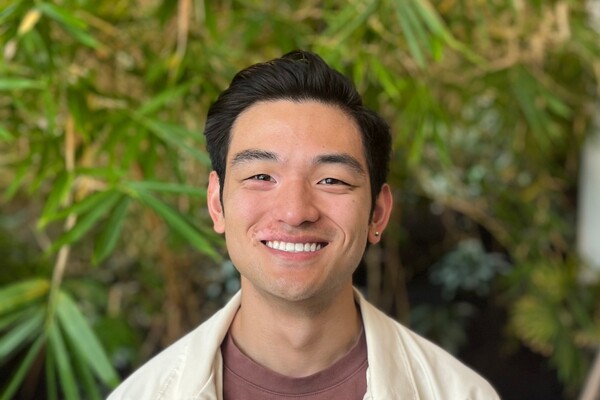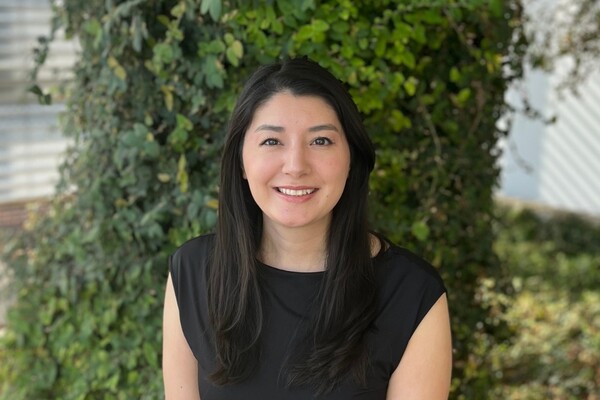Main Second Level Navigation
2022 Yip Awards Celebrate Early Graduate Research In Systems Biology And Nanomedicine

Five graduate students at the start of their research training have been awarded the 2022 Cecil Yip Doctoral Research Award.
The annual award recognizes outstanding students in their first year of graduate programs who are conducting collaborative research projects that straddle the traditional scientific field boundaries and have the potential to impact human health. The award was established by the Yip family in honor of the late U of T Professor Cecil Yip, former vice-dean of research at the Faculty of Medicine and co-founder of the Donnelly Centre.
Yip co-founded the Centre in 2005 as the first interdisciplinary research institute at U of T dedicated to foundational discoveries in biology for the advancement of biomedicine.
The 2022 award winners are enrolled in graduate programs at the Department of Molecular Genetics (Mogen) and the Institute of Biomedical Engineering (BME). Their research projects attempt to answer some of the biggest outstanding questions in human biology with implications for neurological disorders, infectious disease, regenerative medicine and cancer.
“On behalf of the Yip family and the award committee, I would like to offer my warmest congratulations to the 2022 Yip award recipients,” said Christopher Yip, chair of the award committee and Dean of U of T’s Faculty of Applied Science & Engineering and the son of late Professor Yip. “Their research projects tackle some of the most challenging questions in human biology and disease through the development of new methods that will benefit researchers all around the world. I am excited to follow their progress and learn about the discoveries they will make.”
Donnelly Centre investigators, Jason Moffat, Penney Gilbert and Igor Stagljar, served as award committee members to elect the recipients.
These research projects tackle some of the most challenging questions in human biology and disease through the development of new methods that will benefit researchers all around the world. I am excited to follow their progress and learn about the discoveries they will make.Christopher Yip, Dean, Faculty of Applied Science and Engineering
Meet the 2022 Yip awardees:
Jack Dayang Li (Mogen) is in Dr. Ben Blencowe’s lab where he is researching the regulatory mechanisms behind alternative splicing, a process by which cells diversify their protein content by generating different protein molecules from the same gene. The lab previously showed that AS is essential for normal brain development and that miscues in this process can lead to neurological disorders such as autism. In collaboration with Dr. Mikko Taipale’s lab at the Centre, Li is developing an unbiased method using a CRISPR-based technology for hunting down novel protein factors that regulate AS.
Nicholas Sar Ly (Mogen) is working with Dr. Rafael Montenegro-Burke to develop novel mass-spectrometry methods for the identification of small molecules, or metabolites, that are required for self-renewal of the hematopoietic stem cells (HSCs). HSCs give rise to all blood cells and hold potential for treatment of various blood disorders and cancers. Their wider clinical application has been hampered by a scarce availability of these cells and by a lack of understanding of the molecular differences between individual HSCs, which can impact their function. Ly is working to identify key fat molecules, or lipids, that are important for self-renewal in collaboration with Dr. Stephanie Xie, an affiliate scientist at the Princess Margaret Cancer Centre. He hopes to develop new analytical methods to facilitate the analysis of HSCs at the level of individual cells.
Travis Tribble (Mogen) in Dr. Mikko Taipale’s lab is working to establish the most comprehensive atlas to date of pathogen effector proteins, which are produced by viruses and bacteria to help them invade and multiply in human cells. In collaboration with Alex Stark, from the Research Institute for Molecular Pathology in Vienna, Austria, they seek to map how thousands of effector proteins from hundreds of pathogenic viruses and tens of pathogenic bacterial species behave in human cells. A better handle on the biological outcome of human-pathogen protein interactions will increase our understanding of infectious disease and could also reveal novel targets for therapeutics.
Bram Bussin and Qin Ji, both at BME, are in the same lab where they are tackling the problem of targeted drug delivery from different angles. Under the supervision of Dr. Warren Chan, Director of BME, Bussin and Ji are studying how nanoparticles are taken up by the cells in the body in an effort to use them as vehicles for delivering cancer drugs directly into tumours. The Chan team previously showed that around half of nanoparticles injected into the bloodstream get taken up by the liver, while less than one percent of the particles, or one in one hundred, reach tumours. As the particles travel through the bloodstream, they get coated by serum proteins that may impact their uptake by the target cells. Bussin is developing high-throughput approaches to identify which of the blood proteins interact with the receptors on the liver cells. With this knowledge it might be possible to engineer nanoparticles to avoid the liver and hopefully route more of them into tumours. He is collaborating with the functional genomics expert Dr. Jason Moffat, formerly at the Donnelly Centre and now at the Hospital for Sick Children, and the liver immunologist Sonya MacParland, at the Toronto General Research Institute.
Ji is focused on the interaction between the nanoparticles and tumours. He’s building up on previous research from the lab which showed that the particles do not passively leak from the blood vessels into tumours as previously thought. Instead, they are transported in an active process, the details of which remain unclear. Ji has set out to probe tumour metabolism as the driving force of this active transport process. Ji’s hope is that by gaining a deeper understanding of the relationship between tumour nutrient transport and nanoparticle accumulation, this knowledge can be used to better target the nanoparticles into tumours.
News



